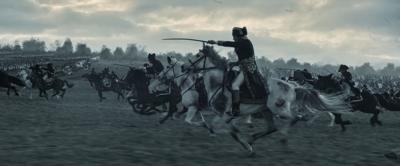It’s not just you. People everywhere have long had a fascination with Napoleon Bonaparte. The madmen of history are oddly alluring that way.
But we here in New Orleans have a more nuanced relationship with France’s Little Colonel than do most of our fellow Americans. “Brotherhood” is probably too strong a word. Yet there undeniably exists a sort of circumstantial kinship between the Crescent City and the one-time self-proclaimed emperor of the realm.
For starters, we were founded as a French colony. We were also, however briefly, a part of Napoleon’s globe-spanning empire. Then of course came the Louisiana Purchase, in which he sold us and the rest of the Louisiana territory to the United States to finance his warmongering ways.
Perhaps most irresistible is legend of the Napoleon House plot, which, tradition holds, sought to rescue Bonaparte from his exile on St. Helena and install him at Chartres and St. Louis streets. (It might have happened, too, if not for the inconveniences of mortality.)
Local interest
All that is to say, there is an understandably keen interest among many New Orleanians in “Napoleon,” director Ridley Scott’s latest historical epic, starring Joaquin Phoenix in the title role and focusing on Bonaparte’s twin obsessions: global conquest and his Joséphine.
That interest gets rewarded this week with a film that is epic in scope, surprising in its deft deadpan humor and, despite a hefty 2-hour-38-minute running time, consistently compelling.
In the process, Scott demonstrates at age 85 that he still knows well how to hold an audience rapt. Phoenix’s mesmerizing performance — typically idiosyncratic — might represent the beating heart of “Napoleon,” but every bit as important are Scott’s breathtakingly sweeping battlefield sequences, which repeatedly deliver beautifully shot moments of horrifying carnage.
His “Napoleon” ends up as a satisfying and suitably dramatic dose of big-screen spectacle. In some ways, it harks back to costume dramas of yore, but it does so without ever feeling old-fashioned.
A military mind
Functioning as a cinematic survey course in the Napoleonic Wars, Scott’s “Napoleon” starts with Bonaparte’s emergence as a gifted young military mind at the 1793 siege of Toulon and continues through his historic come-uppance at 1815’s Battle of Waterloo, followed by his banishment to St. Helena.
Spanning more than 20 years and re-creating six major battles, that would have been ambitious enough from a storytelling perspective. But woven throughout Scott’s film is a second key narrative, focusing on his relationship with Joséphine.
She is portrayed by Vanessa Kirby as a woman of questionable morals — and, at least at the film’s outset, a Pat Benatar haircut. More central to Scott’s retelling, she lived rent-free in Napoleon’s head from the moment he first laid eyes on her.
That being said, “Napoleon” is an oddly cool film for one built around all-consuming passion. Napoleon’s romantic fixation with Joséphine is very much at the crux of Ridley’s film, although the chemistry between Phoenix and Kirby is something less than palpable.
Combat-ready
Whether the result of design or deficiency, “Napoleon” is consequently bound to be more remembered for its combat than its canoodling. (The Little Colonel? More like the little jackhammer.)
Part of that is owed to the performance of Phoenix, who has built a career out of playing tormented men strong in conviction but short on sanity. Often, if not always, those portrayals include a decidedly dangerous but unspoken sense of mystery playing behind the eyes.
That includes his turn as “Napoleon.”
It’s an enormously effective way of building suspense. When, we must think, will he crack? At the same time, though, it inhibits audiences from forming an emotional connection with the character. In this case, that further adds to the film’s chilliness.
It is a dramatic film, no question. But it often lacks heart.
Can we learn from history?
Amid it all, Scott seems to be issuing a warning, lending the film a dash of modern relevance. Here, after all, is the story of a tinpot autocrat who is defined, in the film’s words, as egotistical, power hungry and lacking in basic manners — and who is determined against all reason to return to the stage from which he was unceremoniously booted.
As the saying goes, history might not repeat itself, but it often rhymes.
That said, no one should mistake Scott’s “Napoleon” as an overtly political film. It’s true ambitions are to entertain and inform, in that order.
To that end, it might fall short of full-on triumph. But it’s no Waterloo, either.
Mike Scott can be reached at moviegoermike@gmail.com.
*************
NAPOLEON
3 stars, out of 4
CAST: Joaquin Phoenix, Vanessa Kirby, Matthew Needham, Tahar Rahim, Ben Miles, Rupert Everett, Paul Rhys, Édouard Philipponnat.
DIRECTOR: Ridley Scott.
RATED: R
RUNNING TIME: 2 hours 38 minutes.
WHEN AND WHERE: Opens Wednesday (Nov. 22) in wide theatrical release.

